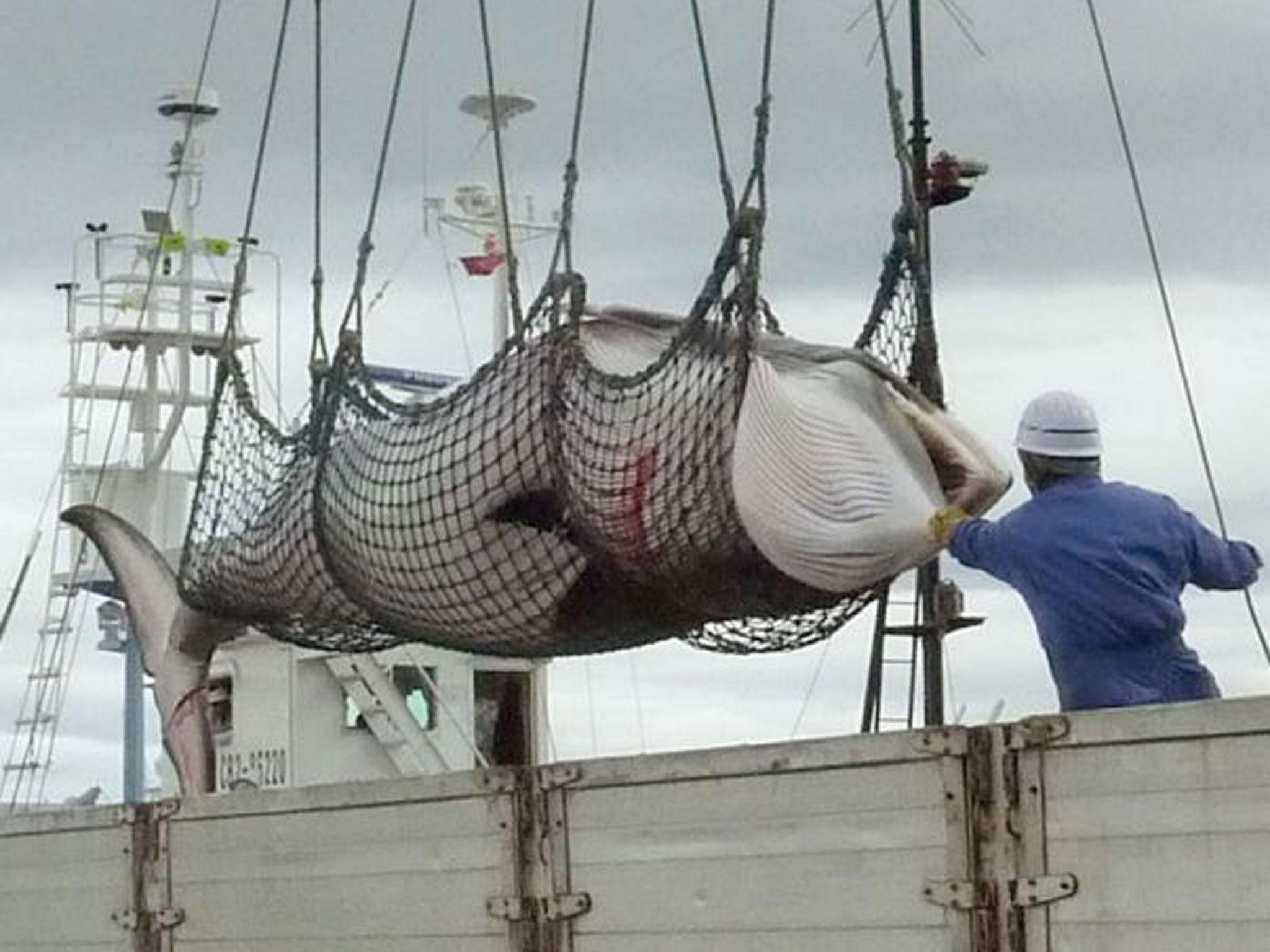Japan proposes ending ban on commercial whaling
Asian country already kills 333 whales a year for ‘scientific research’, though most meat goes on sale for human consumption

Your support helps us to tell the story
From reproductive rights to climate change to Big Tech, The Independent is on the ground when the story is developing. Whether it's investigating the financials of Elon Musk's pro-Trump PAC or producing our latest documentary, 'The A Word', which shines a light on the American women fighting for reproductive rights, we know how important it is to parse out the facts from the messaging.
At such a critical moment in US history, we need reporters on the ground. Your donation allows us to keep sending journalists to speak to both sides of the story.
The Independent is trusted by Americans across the entire political spectrum. And unlike many other quality news outlets, we choose not to lock Americans out of our reporting and analysis with paywalls. We believe quality journalism should be available to everyone, paid for by those who can afford it.
Your support makes all the difference.Japan is proposing an end to the decades-old ban on commercial whaling, claiming it was supposed to be a temporary measure and that stocks of some breeds of whale have recovered enough to allow for “sustainable” hunting.
At the International Whaling Commission (IWC) conference in Brazil, Japan called for major changes to the organisation, which it has said is “intolerant” and a “mere forum for confrontation”.
The proposal said: “Science is clear: there are certain species of whales whose population is healthy enough to be harvested sustainably.”
“Japan proposes to establish a committee dedicated to sustainable whaling (including commercial whaling and aboriginal subsistence whaling),” the statement added.
The move faces stiff opposition from countries and conservationists that argue whale populations remain vulnerable, or more broadly, that the killing of the animals is increasingly seen as unacceptable.
Japan signed up to the International Convention for the Regulation of Whaling in 1951, and the IWC declared a moratorium on commercial whaling in 1986, but Japan has continued to hunt whales ostensibly for “scientific research”, which the convention contains provision for.
The loophole already allows Japan to legally kill hundreds of whales a year. Their current quota is now 333 – about a third the number it used to kill before the International Court of Justice ruled Japan’s programme wasn’t scientific in nature.
It revised the programme and resumed the hunt in 2016. Critics have said the research programme is merely a cover for commercial whaling, as much of the whale meat goes on sale.

Japan has hunted whales since around the 12th century, and on an industrial scale since the late 1800s, and Japanese representatives frequently say eating whale meat is one of the country’s core traditions.
However, consumption rates are falling – a 2014 poll found few people eat it regularly and there is little demand from tourists.
The conference’s host nation, Brazil, has submitted a proposal saying commercial whaling “is no longer a necessary economic activity [and] has systematically reduced whale populations to dangerously low levels”.
The US and Australia also agree the ban is necessary for conservation. Both countries support an exception on the ban for subsistence whalers.
“The Australian people have clearly made a decision that they don’t believe that whaling is something that we should be undertaking in the 21st century,” said Anne Ruston, Australia’s assistant minister for international development and the Pacific.
“The argument that we put forward from Australia is that we don’t want to see any whales killed, whether they’re killed because [of] commercial whaling or whether it’s so-called scientific whaling.”
New Zealand also called on the commission not to “take a step backwards” and to strengthen their efforts on opposing whaling.
Marine biologists have warned the impact of a return to commercial whaling could be felt beyond the loss of numbers of whales.
Marine wildlife consultant Kate O’Connell of the Animal Welfare Institute said last month it was vital Japan was not allowed to dilute voting rules to enable the hunting of whale species.
“We’re only just beginning to grasp the vital role whales play in maintaining the health of the world’s oceans,” she said.
“Weakening the ban now would be a fatal mistake and would open the doors to increased commercial whaling around the world. This cruel and unnecessary industry is a relic of the past that has no place in modern society.”
Join our commenting forum
Join thought-provoking conversations, follow other Independent readers and see their replies
Comments